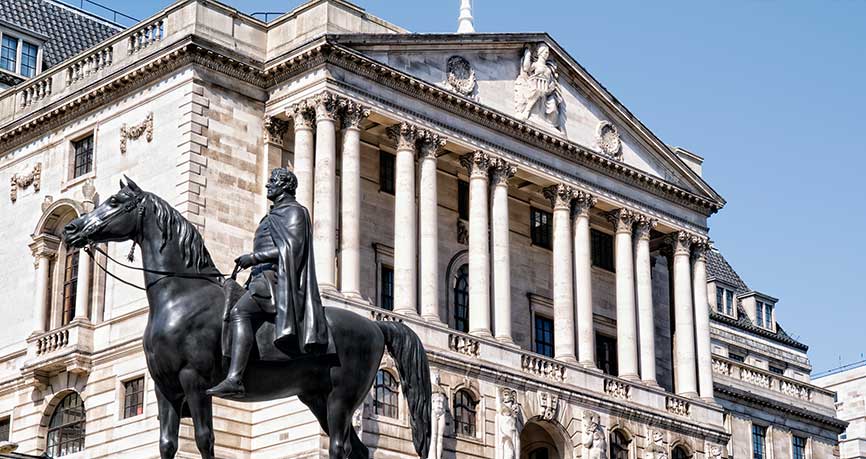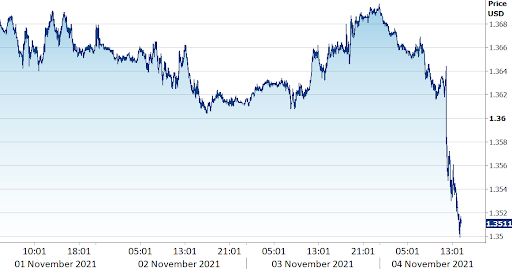BoE November Meeting Reaction: UK rates on hold, but hikes on the cards
( 4 min )
- Go back to blog home
- Latest
Yesterday’s Bank of England meeting delivered a dovish surprise and raised fresh question marks over the credibility of central bank forward guidance.

In its statement, the BoE noted ‘there was value in waiting for additional information on near-term developments in the labour market’ before deciding on the need to tighten policy. This specifically refers to the potential implications from the end of the UK government’s furlough scheme, which drew to a close at the end of September. The MPC also continues to view the recent increase in UK inflation as temporary, which can be viewed as a pushing back against the degree of market pricing for interest rate hikes. According to the bank’s fresh projections this is, however, now likely to take longer-than-expected. The BoE now sees CPI inflation peaking at 4.8% in Q2 2022, higher than the 4.02% peak it had earmarked for Q1 next year during its August forecasts.
Sterling reacted in a rather aggressive manner to the disappointment, which is unsurprising given that futures were fully pricing in a 15 basis point rate increase leading up to the announcement. The pound dropped by over half a percent versus the dollar, slipping to its weakest position since the beginning of October (Figure 1). We think that sterling was spared an even larger sell-off by the bank’s accompanying communication on future policy moves. According to the bank’s statement, interest rates will probably have to be raised ‘over [the] coming months’ should UK economic data, notably from the labour market, evolve as expected. This opens the door to a potential increase in interest rates at either of the MPC’s upcoming meetings in December or February.
Figure 1: GBP/USD (01/11/21 – 04/11/2021)

Source: Refinitiv Datastream Date: 04/11/2021
We think that the two UK labour market reports (16/11 and 14/12) out between now and the next Bank of England meeting are key. Should they point to what we expect to be minimal fallout from the end of the furlough scheme, then this may greenlight the first pandemic era rate hike on 16th December. That being said, futures markets have significantly dialled back expectations for UK rate increases and are, at the time of writing, now pricing in less than 10 basis points of hikes by the end of the year (27 prior to the meeting) and around 30 by the end of February (from 53).
We remain bullish on sterling, and think that the Bank of England will still raise interest rates much sooner than most of its major counterparts, which can only be a positive for the pound. The delayed timetable for hikes, combined with the MPC’s muddled communications and poor forward guidance do, however, suggest that sterling may struggle to meet our near-term projections, which may require a modest revision lower.

